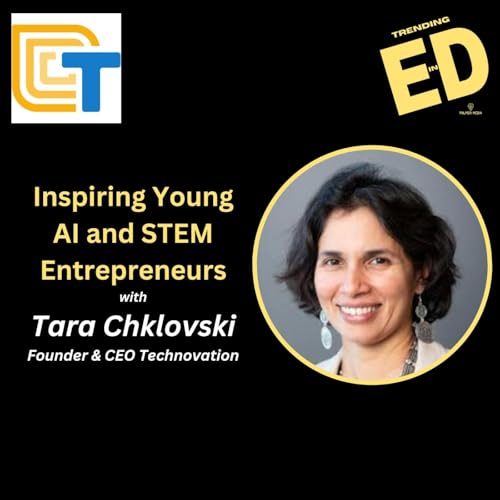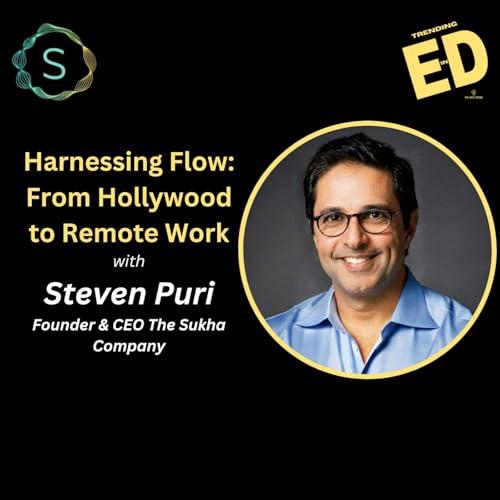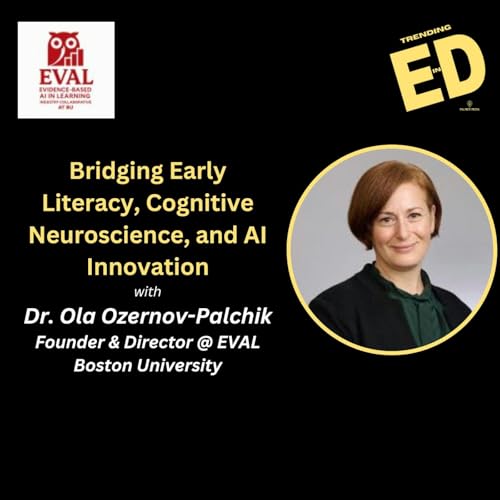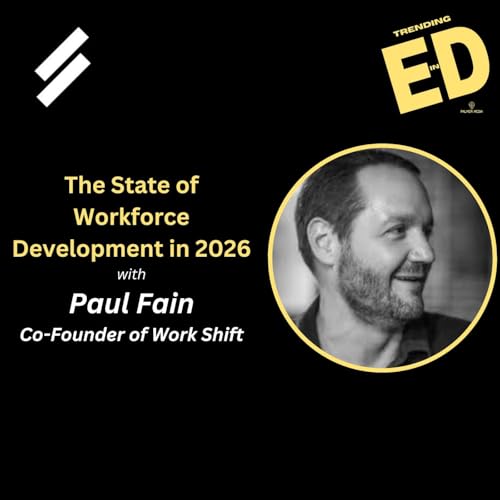How do we prepare Gen Z for a workforce being reshaped by Artificial Intelligence? Recorded live from the National Youth Apprenticeship Summit in Alexandria, Virginia, this episode explores the "Wild West" of the modern innovation economy and the vital role of youth apprenticeships in building future-ready career pathways. This special episode is made possible by our sponsors: CareerWise, a leader in high-quality modern youth apprenticeship systems, and PAYA (Partnership for the Advancement of Youth Apprenticeship), a collaborative initiative assisting partners in developing robust apprenticeship programs across the U.S.. Host Mike Palmer is joined by three experts to discuss the intersection of emerging technology, educational equity, and early career development: Shalin Jyotishi, Managing Director of the Future of Work and Innovation Economy Initiative at New America, explains how technology drives long-term economic growth and why strengthening the link between tech-based growth and economic security is essential. Gina Worthy, owner of Worthey Solutions International, provides deep insights into Gen Z—the "AI native" generation—and their unique needs for purpose-driven work and multi-generational interaction. Steve Jurch, lead of the Center for Policy and Practice at the Association of Community College Trustees (ACCT), highlights community colleges as an "innovation engine" that can rapidly respond to local industry needs and the AI revolution. Key Takeaways: AI Native vs. AI Fluent: Understanding how Gen Z's lifelong relationship with technology shifts their expectations of employers. The Experience Gap: How AI is changing entry-level work and why work-based learning is more critical than ever to bridge the gap between education and employment. Community Colleges as Catalysts: Why these institutions are becoming the primary choice for workforce development and short-term credentials in the innovation economy. The Future of Youth Apprenticeships: Exploring how these programs combine high school dual enrollment with structured apprenticeship to provide early career awareness and skill development. As we enter the AI "wild west," youth apprenticeships offer a vital bridge to purposeful, innovation-driven careers. Timestamps: 0:00 Intro 4:00 Gen Z & Purpose 8:00 Innovation Economy 14:00 Community College Role 35:00 Audience Q&A
Show More
Show Less
 Feb 6 202646 mins
Feb 6 202646 mins Jan 30 202637 mins
Jan 30 202637 mins Jan 27 202644 mins
Jan 27 202644 mins 32 mins
32 mins 46 mins
46 mins 41 mins
41 mins 47 mins
47 mins 53 mins
53 mins
